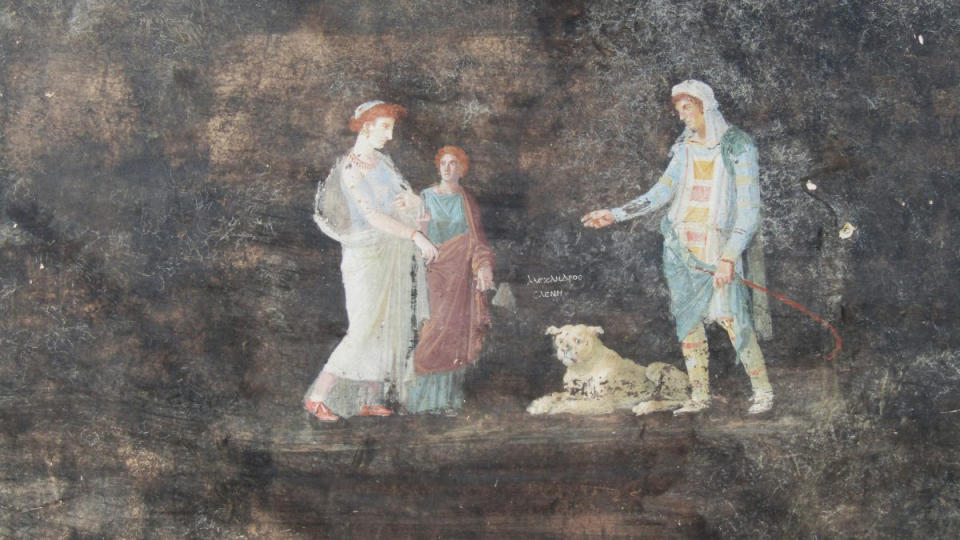Ancient Paintings Depicting Trojan War Figures Were Just Unearthed in Pompei

Ancient Romans appreciated art just as much as we do now.
In Pompeii, archaeologists have uncovered frescoes depicting mythological characters and figures from the Trojan War, The Washington Post reported on Friday. The art, which decorated a banquet room where people would have convened for entertainment, was preserved after Mount Vesuvius’s eruption in 79 A.D.
More from Robb Report
This Billionaire's Tuscan Resort Isn't Just the Talk of the Town-It Is the Town
A Museum Employee in Germany Was Fired for Putting Up His Own Art
This Floating Glass Museum Aims to Put the Climate Crisis Into Stark Relief
“Pompeii is truly a treasure chest that never ceases to surprise and amaze us because, every time we dig, we find something beautiful and significant,” Gennaro Sangiuliano, Italy’s culture minister, said in a statement.
The frescoes and the room in which they were painted were found during excavation efforts in the Regio IX area of Pompeii, the Post noted. The preserved city, a UNESCO World Heritage site, encompasses more than 13,000 rooms in 1,070 residential units. This most recent find, the banquet room, measures 49 feet by 20 feet, and it opened into a courtyard with a staircase to the first floor. The frescoes were painted onto the room’s black walls, which would have hidden the smoke emitted by oil lamps, Gabriel Zuchtriegel, the director of the archaeological park, said in a statement.

“People would meet to dine after sunset; the flickering light of the lamps had the effect of making the images appear to move, especially after a few glasses of good Campanian wine,” Zuchtriegel added.
The frescoes show, for example, Helen of Troy and Paris, who’s identifiable thanks to an inscription of his Greek name, Alexandros. There’s also Cassandra, the Greek mythological figure who could predict the future, and the god Apollo. These sorts of images were common in Roman houses, especially in dining rooms and living rooms where guests could take them in.
“The mythological couples provided ideas for conversations about the past and life, only seemingly of a merely romantic nature,” Zuchtriegel said. “In reality, they refer to the relationship between the individual and fate: Cassandra who can see the future but no one believes her, Apollo who sides with the Trojans against the Greek invaders, but being a god, cannot ensure victory, Helen and Paris who, despite their politically incorrect love affair, are the cause of the war, or perhaps merely a pretext.”
In short, the ancient Romans in Pompeii were not so different from us. And now we have a bit more insight into what it was they were looking at during their dinner parties.
Best of Robb Report
Sign up for Robb Report's Newsletter. For the latest news, follow us on Facebook, Twitter, and Instagram.

